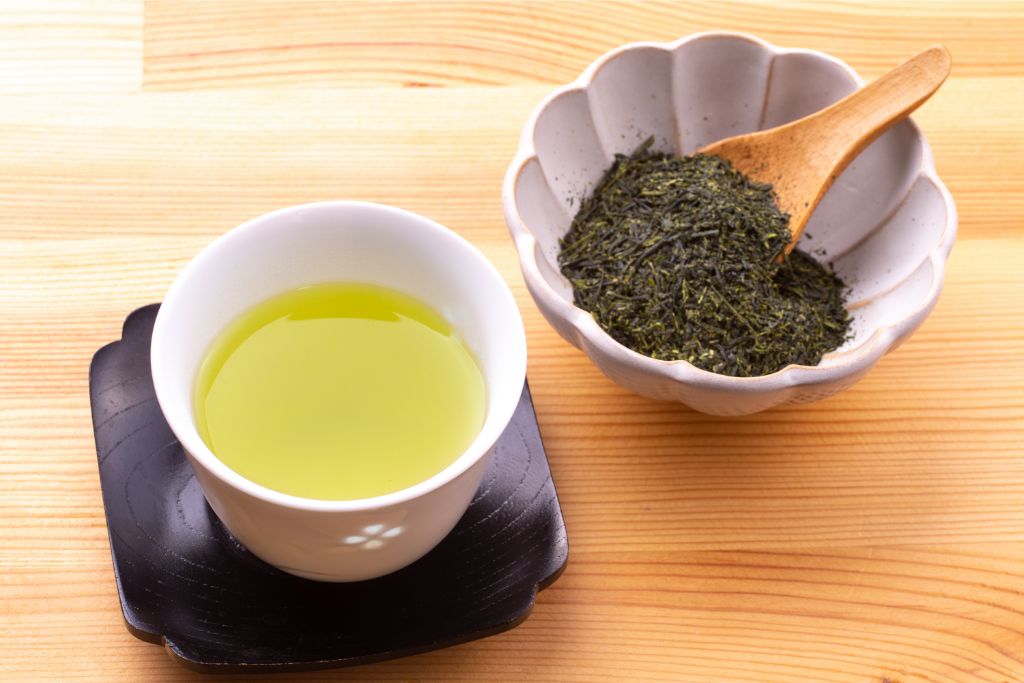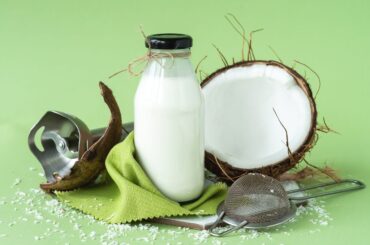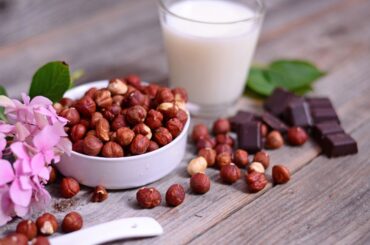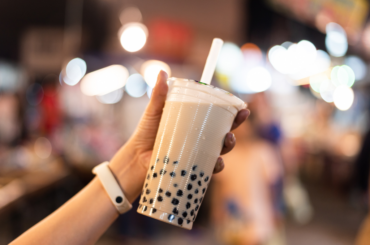Are you a tea lover? Have you heard of Sencha tea? Sencha is a refreshing and flavorful tea with a unique taste and aroma that is different from other green teas. In most cases, it is infused by steeping processed leaves in hot water.
Because of Sencha tea’s distinct flavor profile, it’s fairly uncommon to find the tea available for both overall caffeine concentration and subtle changes in flavor. This post will tell you everything you need to know about Sencha Tea.
Sencha tea is known to originate in Japan. It’s made from the young leaves of the Camellia sinensis plant, which are steamed and rolled to create its distinctive needle-like shape.
The folklore surrounding the origins of Sencha tea suggests that it was discovered by a Buddhist monk who found the leaves had fallen into his boiling water while meditating. However, the history of Sencha tea dates back to the 8th century, when the tea was first introduced to Japan from China.
Sencha tea is often compared to Japanese green teas, like Matcha and Gyokuro, but some key differences exist. Matcha is made from ground tea leaves, and Gyokuro is shaded before harvesting, whereas Sencha is made from unshaded tea leaves and is typically less expensive than Gyokuro.
5 Types of Sencha Tea
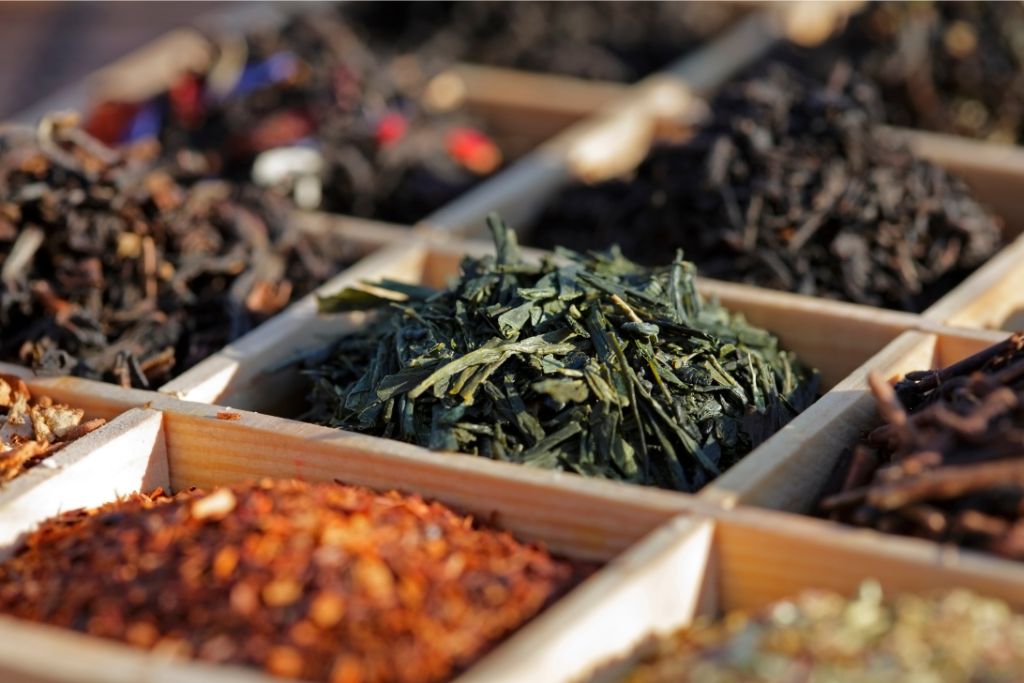
Sencha tea comes in various types. Each type of Sencha tea has its own unique flavor and aroma, making it an enjoyable beverage to explore and taste. The most common types of Sencha tea include:
Fukamushi Sencha
This type of Sencha tea is steamed longer, resulting in a finer texture and a richer taste. The name “Fukamushi” literally translates to “deep-steamed” in Japanese. It refers to the extended steaming process used to make this tea.
The longer steaming time breaks down the tea leaves, giving Fukamushi Sencha a more delicate and powdery texture. It also produces a darker color and a stronger taste, which is slightly dry and grassy. Fukamushi Sencha is particularly popular among tea drinkers who enjoy a more intense, full-bodied green tea.
Asamushi Sencha
Asamushi Sencha is steamed for a shorter period, giving it a lighter taste and aroma. The name “Asamushi” translates to “light-steamed” in Japanese. It refers to the shorter steaming process used to make this tea.
Asamushi Sencha has a delicate and fresh taste with a slightly sweet flavor. It also has a lighter color compared to other types of Sencha, with a smoother texture. It is a popular choice for those who prefer milder green tea.
It’s also a good choice for those who prefer to brew tea at a higher temperature and for a longer period. It’s because it can withstand higher temperatures without becoming bitter.
Shincha
This special type of Sencha tea is made from the year’s first harvest, giving it a fresh flavor. “Shincha” literally translates to “new tea” in Japanese. It refers to its fresh and delicate flavor.
Shincha is known for its subtle sweetness and light umami flavor, with a fresh aroma. It has a bright green color and a smooth texture.
Because it’s made from the year’s first harvest, Shincha is only available for a limited time and is considered a seasonal delicacy in Japan. It’s also more expensive compared to other types of Sencha tea.
Kabusecha
Kabusecha is a type of Sencha tea that’s shaded for a few weeks before harvesting. The name “Kabusecha” means “covered tea” in Japanese. It refers to the shading process used to make this tea.
The shading reduces the amount of sunlight that the tea plants receive. Thus, slowing their growth increases chlorophyll production in the leaves. It results in a greener color and a more delicate flavor.
Kabusecha has a sweet and mild taste with a fragrant aroma. It’s a popular choice for those who appreciate a more refined green tea.
Gyokurocha
Although not technically a type of Sencha, Gyokurocha is often considered a higher-grade Sencha tea. It’s shaded longer before harvesting, giving it a sweeter and more delicate flavor. The name “Gyokurocha” means “jade dew tea” in Japanese. It refers to the pale green color of the tea and its delicate taste.
The shading process causes the tea plants to produce less caffeine, which gives Gyokurocha its unique flavor profile. It has a sweet taste with a rich aroma.
Gyokurocha is considered one of the finest types of green tea in Japan. It is often served in formal tea ceremonies and is more expensive than other Sencha tea types. That is due to the labor-intensive shading process.
Benefits of Sencha Tea
Sencha tea offers various health benefits, thanks to its rich beneficial components. Let’s look at some of the benefits of Sencha tea below.
Reduce the Risk of Chronic Illnesses

Sencha tea is rich in antioxidants called catechins. It can neutralize free radicals in the body, which results in lowering blood pressure and cholesterol levels.
Sencha tea can also help prevent cancer cell growth and spread. It works particularly in the breast, prostate, and colon. Furthermore, Sencha tea has properties that can help to reduce inflammation in the body.
Lessen Stress and Improve Mental Clarity
Sencha tea contains an amino acid called L-theanine, which can increase the production of brain hormones, like dopamine and serotonin. They act like neurotransmitters that help to improve mood and reduce stress levels. Thus, drinking Sencha tea gives one better mental clarity and focus.
The caffeine content in Sencha tea can provide a natural energy boost without causing a crash that can be associated with other caffeinated beverages. It can help improve alertness and mental clarity without causing negative side effects.
Increase Alertness and Improve Physical Performance
Sencha tea contains caffeine, which can help increase alertness and improve physical performance. It can also provide other benefits for physical performance, such as improved circulation and oxygen delivery to the muscles. It can also lessen muscle fatigue and improve recovery time.
Promotes Healthy Digestion and Immune Function
Sencha tea has anti-inflammatory properties that promotes healthy digestion. It can also help to promote the growth of healthy bacteria, which aids in digestion and immunity.
Sencha tea also contains high levels of vitamin C and other immune-boosting nutrients. These nutrients help support the body’s natural defenses and promote overall immune function.
Improves Skin Health

Sencha tea can improve skin health by providing antioxidants, such as catechins, and other beneficial compounds that can help to reduce oxidative stress and inflammation. These can help to neutralize free radicals and reduce stress.
In addition to its antioxidant properties, Sencha tea also reduces skin inflammation. Sencha tea can also provide other benefits for skin health, such as improved hydration and elasticity. Its beneficial compounds can help to support collagen production and reduce the appearance of fine lines and wrinkles.
Sencha Tea Side Effects
Despite the many health benefits of Sencha tea, it has potential side effects. Here are some common Sencha tea side effects and how to prevent them:
Sleep deprivation
Sencha contains the chemical l-theanine, which can produce tranquility, a lower heart rate, and is generally favorable to sleep. However, persons who are caffeine sensitive may not benefit from this chemical. As a result, some people should avoid green tea before going to bed.
Headache Problems
Because Sencha tea includes caffeine, it can induce headaches in some people. If you get headaches, you should avoid drinking green tea daily.
Stomach Issues
Sencha tea contains tannins, which can impair the body’s ability to absorb vital vitamins and minerals, like iron, if drunk excessively. It can also cause an increase in stomach acidity. Avoid drinking Sencha tea on an empty stomach to avoid these negative effects. Instead, drink it after every meal.
Avoid green tea if you have acid reflux or stomach ulcers because it can exacerbate acidity.
FAQs
Does Sencha Tea Make You Sleepy?
No, the Sencha tea caffeine level can increase alertness and prevent drowsiness. However, it is recommended to avoid drinking Sencha tea late in the evening to avoid disrupting sleep.
Is Sencha Tea Good for Weight Loss
Yes, this tea boosts metabolism and the digestion process. However, drinking Sencha tea alone may not lead to significant weight loss. You should still have a balanced diet and regular exercise.
When Should I Drink Sencha Tea?
You can drink Sencha tea anytime during the day, as it is a refreshing and healthy beverage that can be enjoyed hot or cold. It is recommended to avoid drinking Sencha tea late in the evening to avoid disrupting sleep due to its caffeine content.
What Is Special About Sencha?
Sencha is a type of Japanese green tea with a unique processing method. It involves steaming the leaves immediately after harvesting to preserve their nutrients and flavors. It results in a refreshing and flavorful tea with a distinct aroma and various health benefits.
Does Sencha Tea Expire?
Yes. Like any other tea, Sencha tea can expire. Over time, the tea’s quality, flavor, and aroma can vanish.

